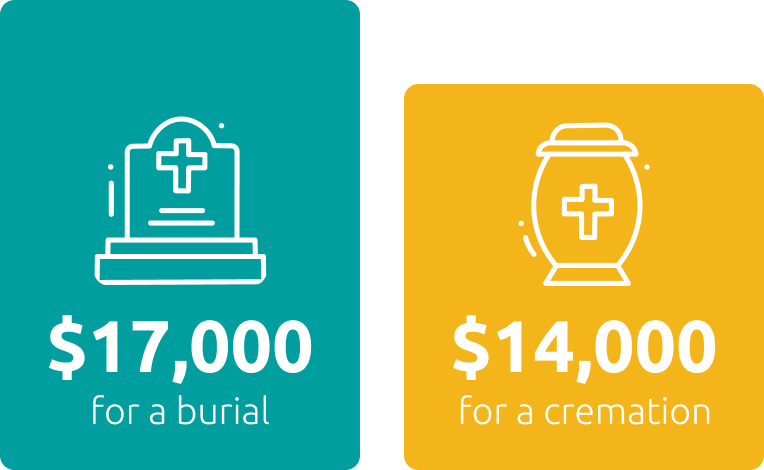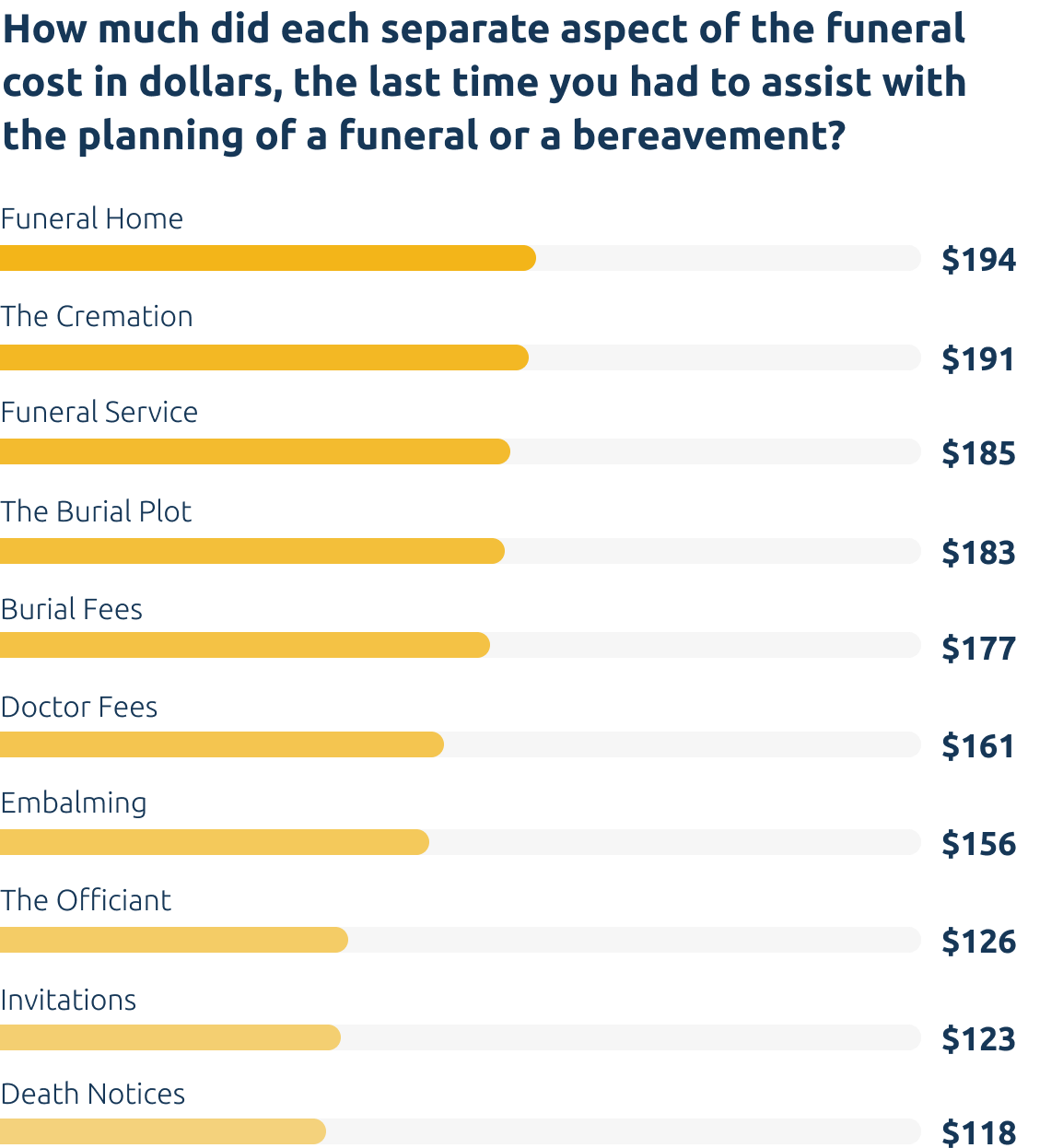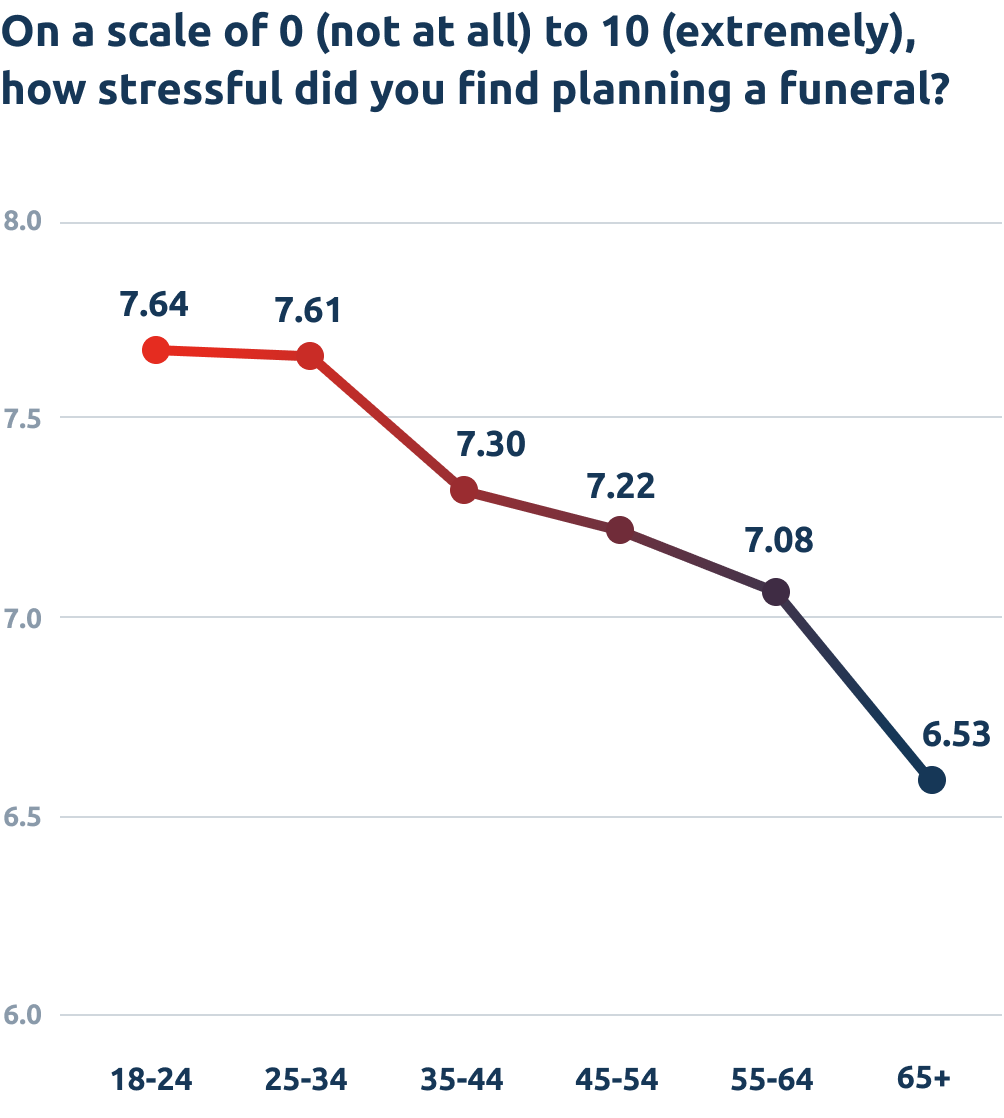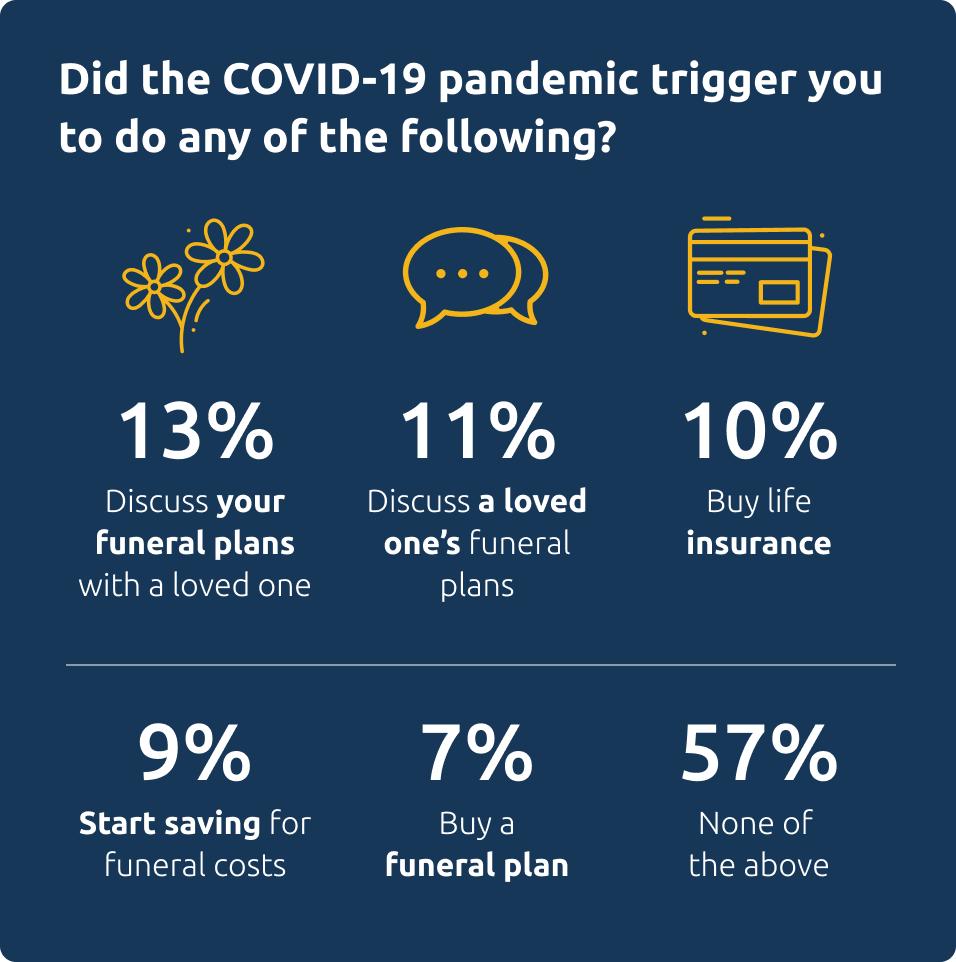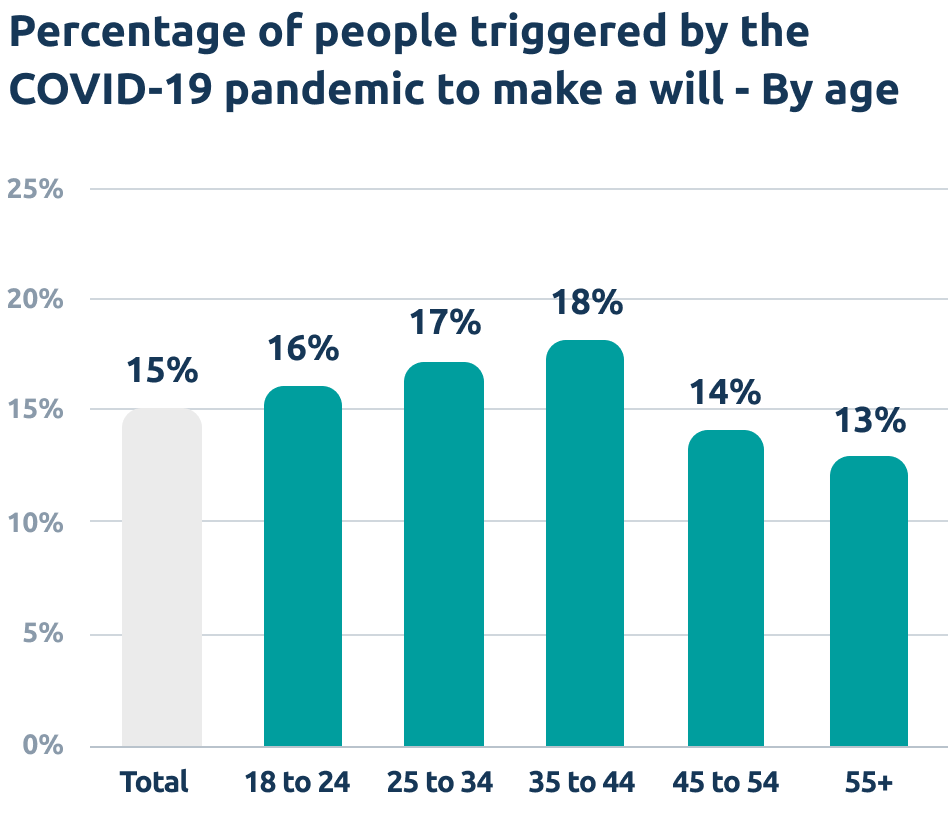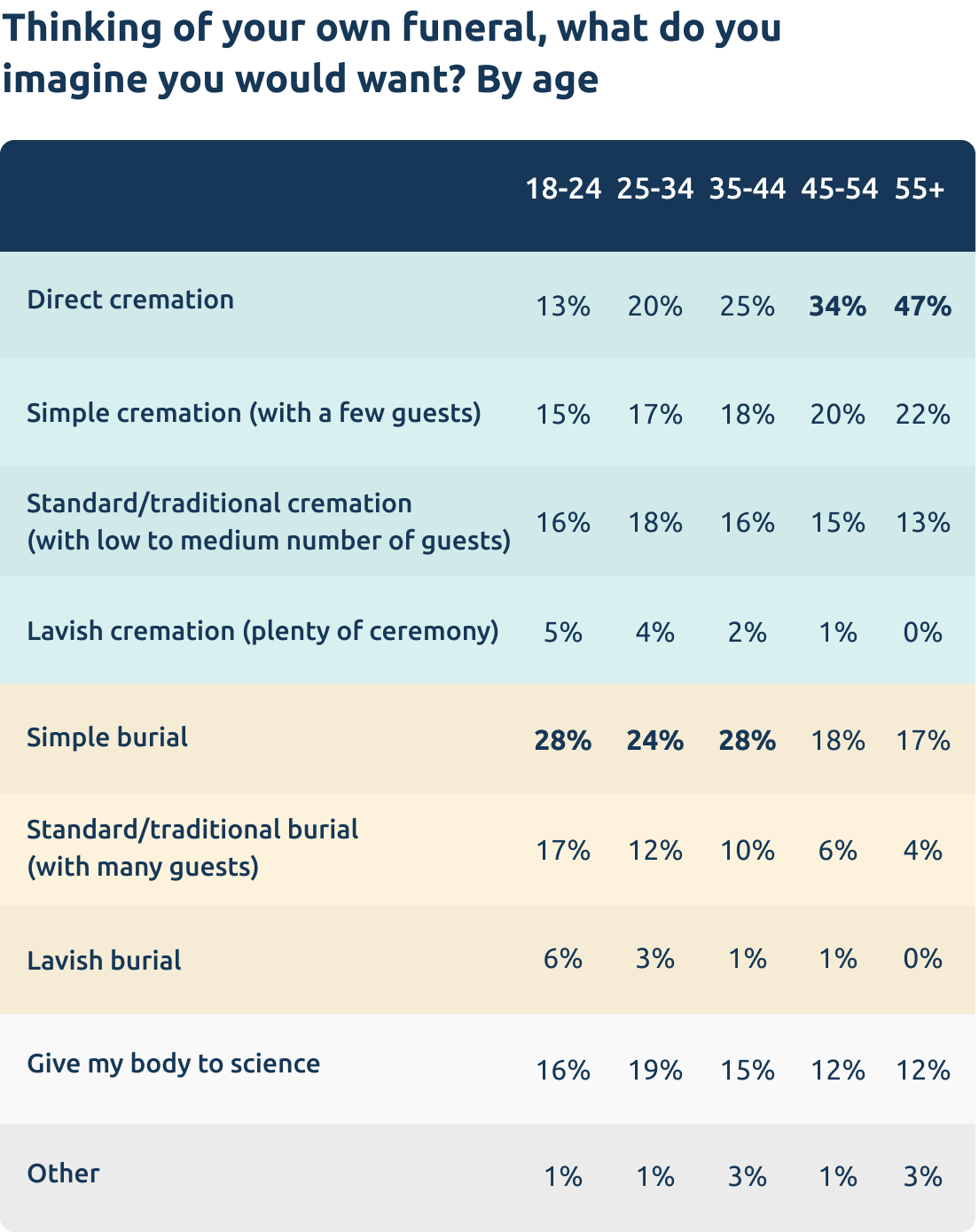Hello, and welcome to the 2024 report...
For most of us,
the death of a loved one is one of the hardest moments in any of our lives; a time when no-one wants to have to worry about the financial and practical requirements of arranging a funeral. That challenge is made even more daunting if the deceased has made no plans as to how the costs of arranging the funeral will be met.
The urgent need to start considering how to cover the cost of a funeral can be seen in the average cost of the funerals that respondents to the Funeral Planning survey have helped to organize ($7,793); and the fact that in three out of ten of these funerals the cost was more than $10,000.
Many people will be very worried about the possible costs of a funeral while the cost of living crisis continues. Last year almost half of the people questioned for our Funeral Opinions survey (45%) said that if they suffered a family bereavement they would not be able to cover funeral costs; this year 46% say this. In both last year and this year’s survey, 87% of respondents to the Funeral Opinions survey agreed that: “The high cost of funerals adds significant stress to families undergoing the strain of bereavement.”
There has been a remarkable level of consistency in many of our findings both last year and this year. We hope this shows that our research is capturing an accurate picture of the costs of funerals in Canada today and the practical and emotional impact that organizing funerals has on the people who take on this task.
Above all, our findings underline how important it is to start thinking about how your own funeral or that of a loved one might be paid for. It is difficult for most of us to even think about this subject, let alone talk about it, but by starting to do so and taking steps to ensure that the costs involved will be covered, you may be lifting a great burden from the shoulders of the people you will leave behind at the end of your life. It will bring you some peace of mind.
This report is intended to help you and your loved ones prepare to make decisions about your own funeral, or the funeral of someone dear to you.
We hope you find it useful.

David Rees
Executive Director

